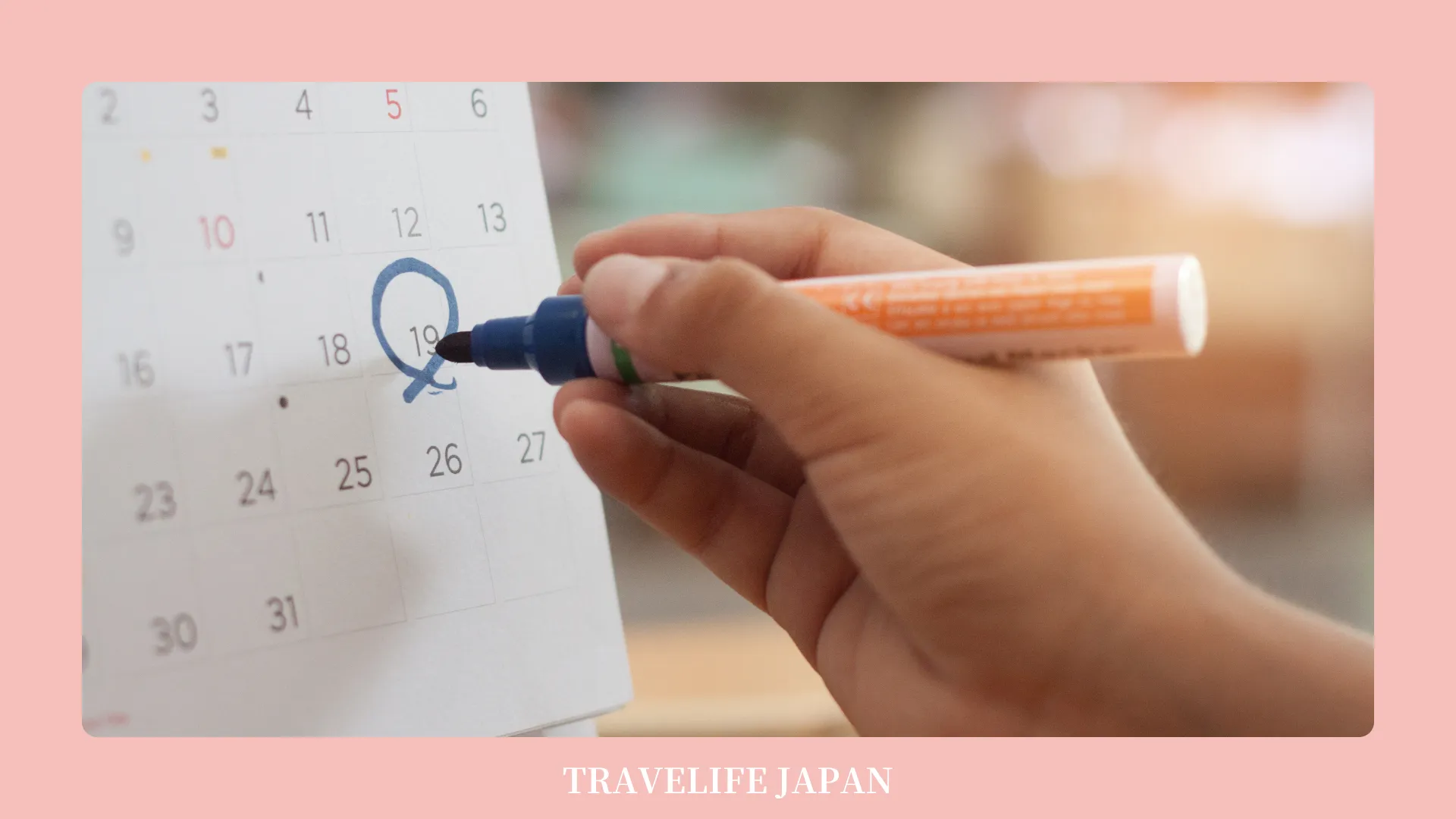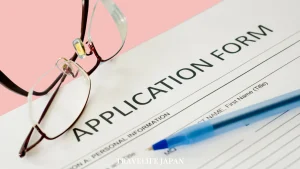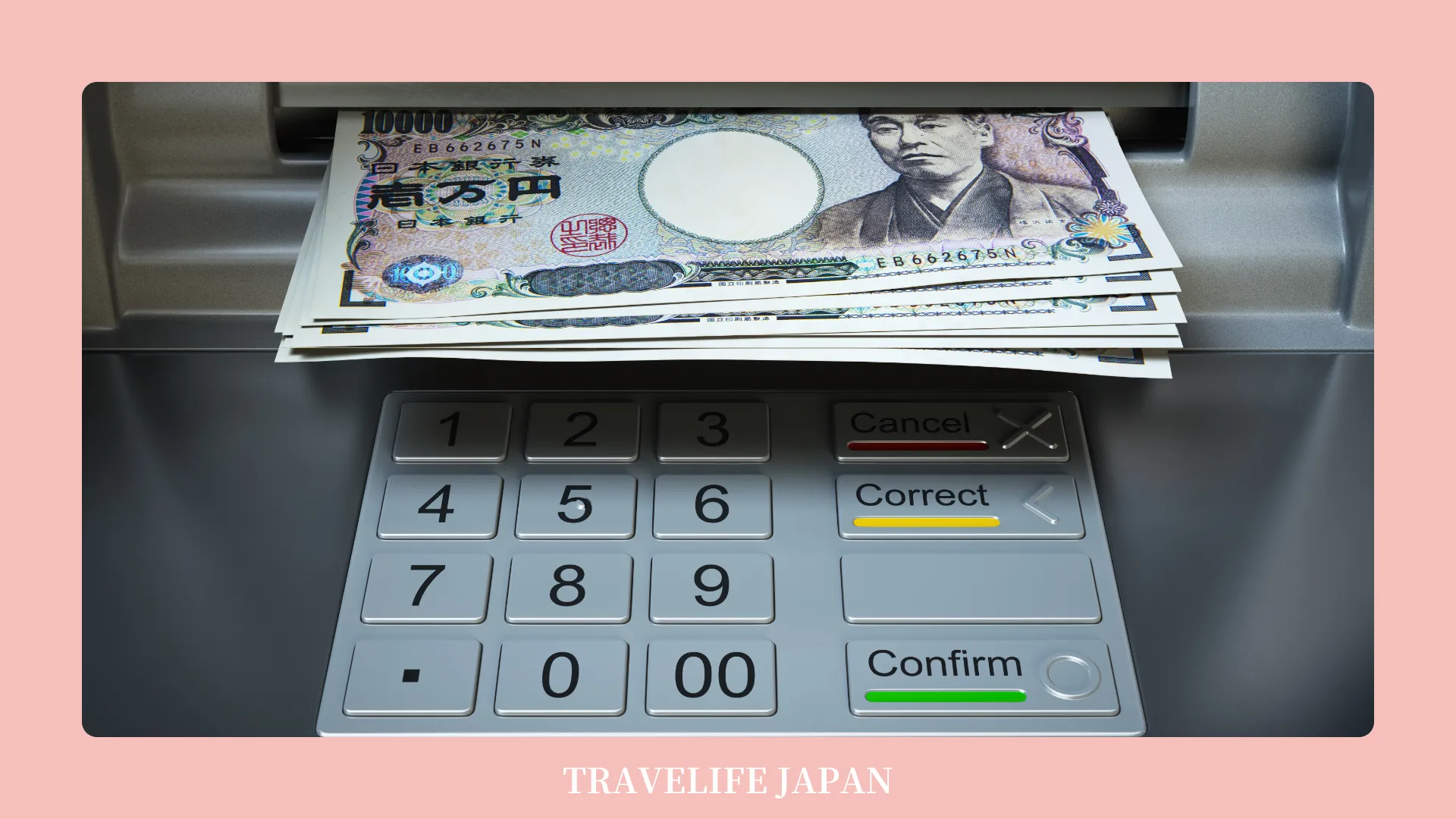Are you preparing to leave Japan after your studies or stay? Navigating the departure process involves several key steps to ensure a smooth transition. From notifying your landlord and school to managing utility services and returning your residence card, this guide outlines the essential procedures to follow before waving goodbye to Japan.
Want to learn Japanese in Japan? Ask any questions!
Apply with Travelife Japan to receive personalized guidance, application support, and a smoother enrollment experience.
Deciding Departure Date

When planning your departure from Japan after your studies, it’s essential to leave within your visa expiry date, making it paramount to verify this date well in advance. By doing so, you safeguard against the pitfalls of overstaying and ensure your transition from student life in Japan to your next adventure is as smooth and enjoyable as possible.

Notifying Landlord and School to Terminate Accommodation

Dormitory, Homestay, and Sharehouse
If you’re living in a dormitory, homestay and dormitory, especially one run by your school, procedure of moving out is usually simple. Make sure to tell the people in charge when you plan to leave, ideally 1-2 months before you go. This helps everyone prepare better, both for you and the next students coming in. When you leave, you may get your security deposit back, but they might keep some of it for any repairs or cleaning needed. It’s a good idea to talk about this early on so you know what to expect and there are no surprises.
Private Apartment
On the other hand, if you’re living in a private rental, the approach is slightly different. It’s generally required to notify your landlord about terminating your lease approximately 1-2 months before your intended move-out date. Be sure to review your rental contract closely to avoid any penalties for breach of agreement. Upon vacating, ensure that the property is left in good condition to facilitate the return of your security deposit. Be mindful that leaving before your contract term can incur penalties, often equating to one month’s rent.
Finishing Utilities and Mobile Contract

When you’ve determined your moving date, managing utility service ranks highly for importance. Approximately one month prior to departure, students are advised to contact their utility providers, including gas, electricity, water, and internet services, to schedule the discontinuation of their utilities. This is essential to prevent incurring charges for services no longer utilized once the student has left the country.
Furthermore, attention must be directed towards mobile phone services. Students possessing a contract or those who are still making payments on a device must initiate the cancellation process to halt further charges. It is imperative to settle any outstanding balances or navigate early termination fees to avoid financial complications following departure. Taking these actions is crucial for a trouble-free departure
Packing Your Belongings

For those who have studied for long-term, it’s common that your belongings have significantly accumulated over time. Organizing and sorting through these items often demands more time than anticipated, so you are necessary to start early to the process before you depart from Japan. Among these belongings, large items such as furniture and electric devices, which are impractical to transport back to your home country, can be sold or donated on the second-hand market. Mercari and Jimoti are the most popular second-hand trading platforms that facilitate transactions. you can also sell some stuff on the trading market such as BOOKOFF.
In instances where items remain unclaimed or unsold, the local municipal office provides a solution for the disposal of bulky waste. By reporting these items on the district office’s website, and adhering to the protocol of attaching a purchased sticker from a convenience store, residents can ensure proper disposal.
For items you wish to bring back home, consider using the postal service’s courier option. Sea mail could be a cost-effective option. Despite a longer transit time, the savings can be considerable. Packing materials are readily available at post offices, where you can securely package your items and arrange for both invoice registration and doorstep pickup directly through the postal service’s website. Ensure you are aware of restrictions on certain international mail.
Administrative Procedure

Within 14 days of your determined departure date, you need to go to your city hall and fill out a form called “Tenshutsu – Todoke (Moving-out Form)”. For this procedure requires you are required to bring your passport, residence card, My Number card and a copy of your flight ticket (e-ticket). This notification is processed at the municipal office’s resident registration section.
If you’re enrolled in Japan’s National Health Insurance (国民健康保険 Kokumin Kenkō Hoken), you’ll need to cancel your membership. The process involves settling any remaining insurance premiums in cash for the duration up until your departure. Bring your passport, residence card, and insurance card to the municipal office’s National Health Insurance section for this procedure.
This step is relevant only for those who have enrolled in the National Pension Plan (国民年金 Kokumin Nenkin). If you’re part of this system, cancellation happens concurrently with your health insurance cancellation. This ensures you are no longer obligated to make contributions after leaving Japan.
If you do not plan to return to Japan, you should return your My Number card to the municipal office. However, if you intend to come back to Japan in the future for work, study, or a working holiday visa, you can inform the municipal office staff. They will mark your card as returned, which you can then keep. Upon re-entering Japan with a new visa, you can resume using the My Number card by presenting it at your local municipal office.
Closing Bank Account

If you plan to return to Japan within two years for work, further studies, or a working holiday, consider keeping your bank account open. However, it’s wise to clear any remaining balance to avoid complications. Japanese banks may designate accounts as inactive (“dormant”) after two years of no use, potentially leading to the forfeiture of any remaining funds.
For those with no plans to come back to Japan, cancel your bank account by visiting the bank with your residence card, passport, and a personal stamp(or signature). Ensure this task is on your pre-departure checklist to avoid leaving loose ends. Before initiating the closure of your bank account, verify that all automated payments, such as utility bills and mobile phone charges, have been fully settled. This precaution helps prevent any unresolved debts from accruing additional charges or affecting your financial standing.
By carefully managing your bank account before leaving Japan, you can avoid potential financial issues and ensure your transition back home or to your next destination is as smooth as possible. This preparation not only reflects responsible financial management but also respects the procedures and systems in place in Japan, allowing for a positive conclusion to your stay.
Returning Residence Card

Before leaving Japan, if your residence card becomes invalid because you’re no longer a mid or long-term resident, or if your Re-Entry Permit expires, you’re required to return your residence card. This can be done directly at the airport by handing it to an Immigration Officer during your departure procedure or by mailing it to the below address. Don’t forget to mark your envelope with “Return of Residence Card.” It’s crucial to return the card within 14 days after it becomes invalid to avoid potential fines.
Tokyo Kouwan Goudouchousha 9th Floor Tokyo Immigration Bureau Odaiba Bunshitsu, Oumi 2-7-11 Koutou-ku Tokyo 135-0064
Conclusion
Concluding your journey in Japan with a well-planned departure ensures a smooth transition to your next adventure. By diligently following through with each step — from notifying your accommodation provider, managing utilities and contracts, to returning your residence card — you safeguard against any potential hiccups. Remember, timely action in these matters not only respects local norms but also leaves a positive imprint of your stay. As you close this chapter, you’re all set for a seamless move, cherishing memories and experiences from your time in Japan.
CONTACT US
For studying Japanese in Japan, please contact us.

